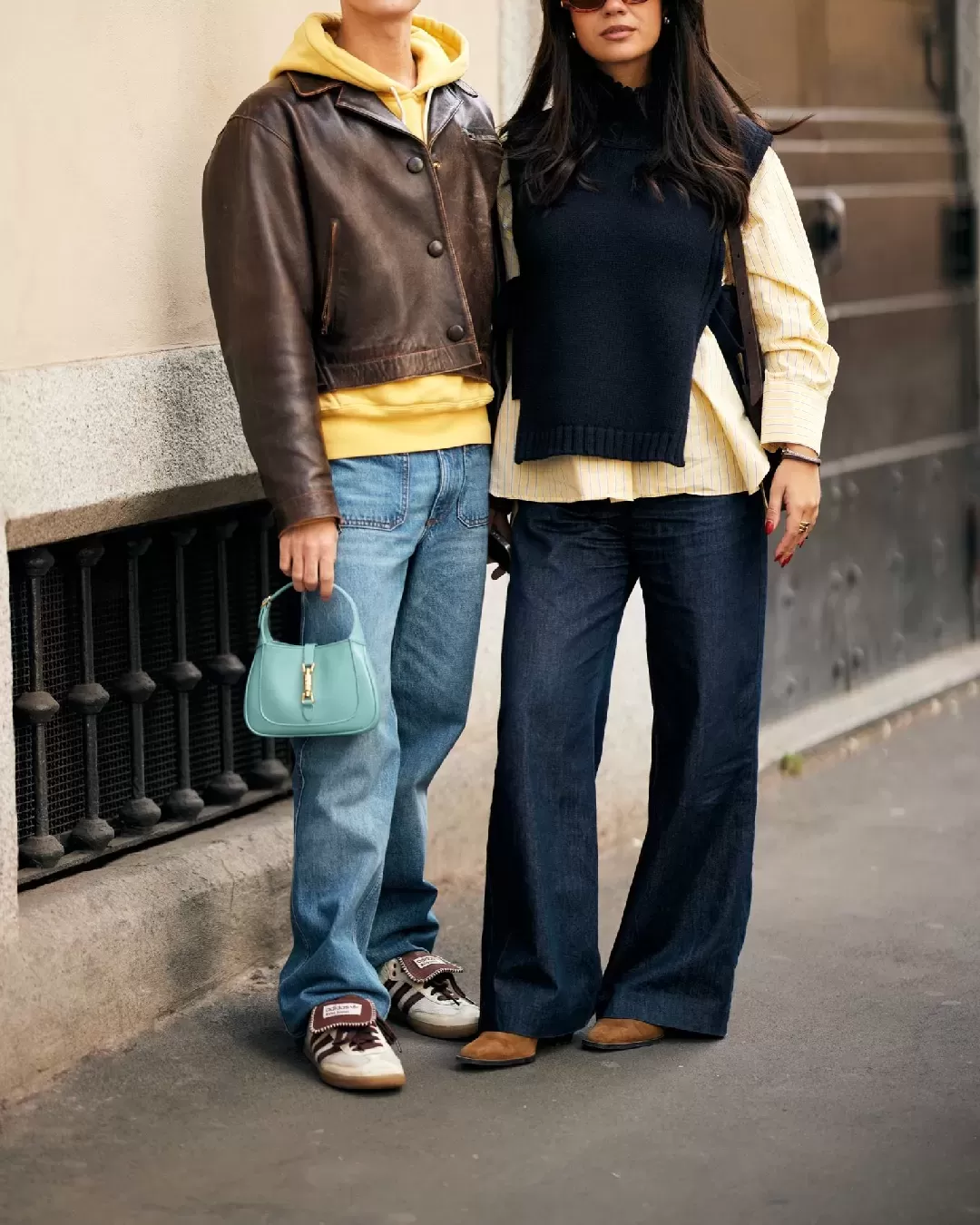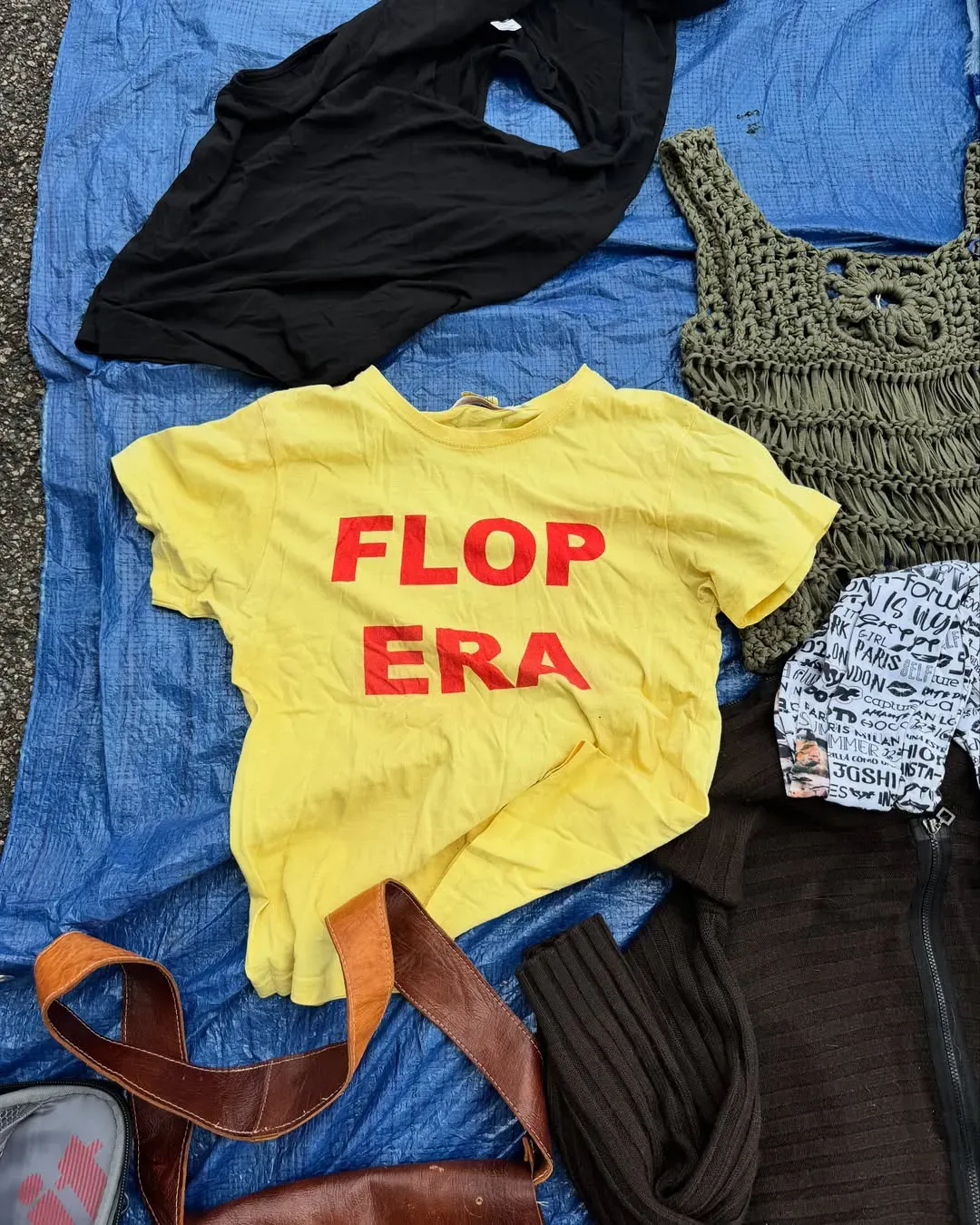
What if fashion started again from sample sales? Silent failures and new buying habits
Fashion is going through a deep crisis, and the signs are everywhere—from major groups selling off assets and real estate to the silent collapse of luxury retail, to phenomena like installment payments on Klarna that are never repaid and the skyrocketing increase in sample sales in major fashion cities. But what if these sample sales weren't just a symptom of a phase of decline, but rather the sign of a new beginning? What would happen if brands decided to give up distributors, imposed calendars, and productions destined solely for stores? Selling directly—even scraps, surplus materials, or mismatched socks—could become not only an act of survival but also a concrete and circular solution capable of lubricating the gears of the fashion system that have long been stuck. In recent months, we’ve seen sample sales everywhere: one-day or multi-day clearances from mega brands offering items at discounts of up to 90% off retail price. At a time when fashion is investing its resources only in communication, events that shine a spotlight on the product could be the answer to the infamous "luxury crisis."
@laravioletta_ Not sure if I can let the bag go #fyp Originalton - laravioletta_
The COVID-19 pandemic could paradoxically have represented a turning point for the fashion system. Yet once again, it seems that all brands and conglomerates, instead of overhauling the system, simply waited silently for a return to normal: price increases, lack of transparency in production, inflated salaries for those working on brand image and deflated ones for those making it real. More than ten years ago, Li Edelkoort and Orsola De Castro—the former one of the world’s most important trend forecasters and founder of Trend Union, the latter a pioneer of ethical fashion storytelling and founder of Fashion Revolution—predicted all of this, advising brand strategists to focus on production transparency and direct sales between brand and consumer to restore order in a system with clear problems. But all this needed to be genuinely implemented, not just used as a marketing statement.
@nikpollina Counting down my craziest nyc shopping stories - this is the day i realized that lucury brands overproduce and sample sales arent as sustainable as i once thought - sad but if you want legit discounted bags go check them out #designerbagsforless #secretshopping #wheretoshopnyc #bestshoppingnyc original sound - Nik Pollina
In recent weeks, we’ve seen incredible cases signaling an urgent need for change: Klarna, the installment payment platform, reported overall losses of 17% due to customers circumventing the system to avoid paying for purchased products. Meanwhile, Kering is going through a very difficult period, at risk of being downgraded due to debts that reached €10.5 billion by the end of 2024 and a sell-off of much of its real estate to acquire liquidity. Even LVMH, in addition to the now obvious fashion-related issues, isn’t doing so well, with revenue drops in every sector, including beverages, which led Moët to lay off 1,200 workers. Things aren’t looking any better for independent brands, whether established or emerging. The cult avant-garde brand Boris Bidjan Saberi, based in Barcelona, announced its closure by the end of July. At the same time, one of the most interesting independent brands in Paris, Louise Lyngh Bjerregaard, announced the closure of her brand in an Instagram post on April 17.
@cyberglocky which was your favorite? #samplesale #balenciaga #haul original sound - cyberglocky
While focusing on direct sales would bring serious problems for distributors—already in crisis for many years, seeing more and more brands leaving to independently organize their sales campaigns and retail strategies—it would, on the other hand, guarantee more control to companies. In this case, they would be free to sell any kind of product at any time of year, without relying on exclusive relationships with stores or facing unfair competition. This would allow for true honesty and transparency, and the inclusion of scraps and recovered materials would also ensure a return to physical space sales, opening ateliers and studios to foster proximity and stronger storytelling. As we’re seeing these days, customers participate not only because of huge discounts but also because they hope to meet those who work on the brand's design. Focusing on sample sales and direct selling would also suggest a break from the spectacle of Fashion Week in favor of more accessible and immediate modes. After all, it’s the clothes that lead the trends, not fashion itself. Maybe, rather than a sign of crisis, the sample sale phenomenon is telling us that fashion wants to exist again outside the traditional retail system.















































